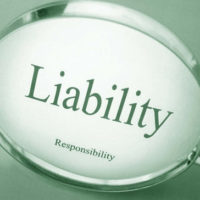What are the Legal Elements of Premises Liability in Maryland?

Under the umbrella of personal injury law, premises liability holds certain property owners responsible for harm or injury to visitors. A successful premises liability claim depends upon proving negligence. In order to prove negligence, an injured visitor must be able to demonstrate four elements: Duty, Breach, Cause, and Harm.
Duty
Duty of care is the threshold element for any premises liability claim. An injured visitor must be able to show that the property owner had a duty of care to protect visitors from potential harm.
In the case of businesses open to the public, this duty is clear. When a business is open, customers can usually walk in and explore freely. As a result, businesses must ensure that the premises is clear of any dangerous conditions. And if such a dangerous condition arises, businesses have a duty to correct the issue or at least post a warning to customers.
In the case of private residences, however, the duty of care for a property can change based on the type of visitor. Property owners have a heightened duty for certain types of visitors, including but not limited to friends, family, and business guests. Property owners must warn these types of visitors of any dangerous conditions on the property.
In the case of trespassers — people who enter the premises without legal justification — property owners owe a much lower duty of care. In the case of trespassing, property owners have a duty to avoid reckless or dangerous behavior that could lead to injury.
Breach
Assuming the property owner owes a duty care, the next element in a premises liability claim is breach. A property owner breaches their duty of care by failing to protect visitors from potential harm.
As outlined in the previous section, the property owner’s duty of care can change based on various factors. Correspondingly, there are many different types of potential breach. For example, a business owner could breach their duty by failing to mop wet floors or post warning signs. Or a residential property owner could breach their duty by neglecting to tell visitors about a broken staircase. Whenever there is a dangerous condition, owners must take reasonable steps to protect visitors. Otherwise, owners breach their duty of care.
Cause & Harm
Cause and harm are the last two elements of a premises liability claim. In order to qualify under premises liability, a visitor must suffer harm or injury. Furthermore, the property owner’s breach must be the sole and proximate cause of the visitor’s harm or injury. A mere relation between the owner’s breach and the visitor’s harm is not enough. There must be a causal link between those two elements. Without such a causal link, injured visitors are unlikely to prevail in a premises liability claim.
Do You Need Legal Help?
If you need legal help with a premises liability claim in Maryland, it can be distinctly useful to reach out to a seasoned personal injury attorney. Based in Baltimore, Maryland, the attorneys at Iamele & Iamele, LLP have a wealth of combined legal experience in the field of personal injury law, including premises liability claims. If you need legal help, contact us today for a free initial consultation.

